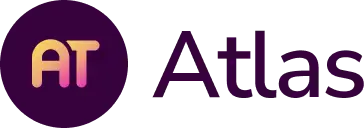by Chic Foote, Educational Consultant, New Zealand
This post was originally published in February 2015 and was updated July 2019.
In their book The Curriculum Mapping Planner, Heidi Hayes Jacobs and Ann Johnson devote module 6 to the review cycle. Within this they include a range of purposeful strategies to implement a very comprehensive review following Heidi’s Curriculum Mapping Seven-Step Review Process (1997). If a school were to implement this cycle as it is outlined there will be clear structures in place that fosters and promotes collaborative conversation.
This post is not intended to reframe what is clearly a very valid and well tested process, but rather to develop the system wide thinking that embeds a culture of professional reflection and review.
Throughout my years of working with schools to establish and sustain curriculum mapping it has become evident that the effectiveness of the curriculum mapping process relies on a deeply embedded culture of collaborative conversations. Without these conversations the mapping process reverts to a planning process that is driven by the need to meet requirements but lacking in depth, alignment, or responsive contemporary curriculum. The effectiveness of these conversations and related curriculum are greatly enhanced when they result from a regular system wide review process.
5 Essential Strategies to Facilitate Collaborative Curriculum Conversations
1. Schedule
Before it is possible to establish a culture that facilitates deep professional learning conversations, it is important that the time for this is both valued and established as a regular expectation on the school calendar.
When schools begin curriculum mapping, scheduling each stage of the process is essential. However, as the process continues it has been my observation that the key element of map review is often the first to be rescheduled, given less time, or postponed. As soon as this occurs the value of the process is lessened and the opportunity for regular and effective collaborative curriculum conversation is weakened and eventually lost.
When equal importance is placed on scheduling regular curriculum map reviews within schools and across the school system, there is a significant shift in the professional learning culture and the effectiveness of the resulting collaborative conversations.
2. Process
It is essential that there is a clearly defined structure that ensures common expectations, approaches, and language system wide. This can be effectively developed through a recognized and established review process across the school or district that includes both macro and micro review structures.
- Macro review structures are those that are across the school system and implemented at significant points throughout a school year or in response to system wide data.
- Micro review processes are those that take place regularly between these scheduled system wide reviews. It is within this framework that teachers can respond specifically to the adjusted or amplified curriculum and monitor the impact on learning and achievement within a team/level or cohort.
It has been my experience that when the system wide review process is transferred and applied at a more micro level by common groups or teams, the rich collaborative conversations continue and become a part of the professional culture of learning that transfers across the school system. This results in a deeper more intentional refinement and upgrading of curriculum and related contemporary teaching and learning.
3. Purpose
Without clarity of purpose collaborative curriculum conversations are unlikely to occur. Instead, this focus will be seen as another task or an additional demand on already stretched teachers and administrators. A purposeful process will ultimately be driven by the value it brings to those who participate. If the purpose is unclear the value will be non-existent.Clarity of purpose can only be achieved through an effective curriculum mapping process that:
- Provides opportunity for all participants to engage in each stage with purpose and relevance
- Has a clearly defined purpose that enables participants to see how the process will add value and impact learning and achievement
- Leads to purposeful and effective collaborative conversations that share strategies, problem solve and develop new professional learning opportunities.
4. Protocols
In order for effective collaborative curriculum conversations to occur across a school system, it is essential that clear protocols are established to ensure an environment where all members of the school system feel their contributions are valued and respected, and a practice of ‘suspending all judgment’ is at the heart of these conversations.
When we consider the complexity of any school system it is clear that open, honest, and respectful conversations are most likely to occur when they are framed by clear protocols and simple steps to guide and focus the conversation. It is essential that these protocols are system wide in order to establish common strategies that support deep purposeful collaborative professional learning conversations in a range of contexts.
5. Action
The previous 4 strategies will ensure an effective curriculum mapping process that leads to the development of a culture of purposeful collaborative curriculum conversations. However, over many years of experience with schools, I have noted that each of the above strategies relies on this final essential element of the curriculum mapping process – taking action.Schools that have been most successful in embedding the curriculum mapping process and therefore effective collaborative curriculum conversations are those that have included a process for:
- timely synthesis of data
- feedback and further review and refinement
- specific strategies, actions and timelines
If participants do not see purposeful action resulting from their commitment to the process they will see little value in participating in any part of it which will immediately weaken the quality of all stages of the process, and the essential elements of collaboration and deep purposeful curriculum conversations
Interesting in learning more? Listen in as Chic shares 5 Points for Creating Culture of Curriculum Mapping
If you’d like to contact Chic, or learn more about her work, visit her website Helix Consulting
[box] FariaPD supports teachers and leaders around the world with hands-on, active and creative professional development experiences. Join one of our online or in-person professional development events, each designed to support the unique goals of your school or district. FariaPD is part of Faria Education Group, an international education company that provides services and systems for schools around the world including ManageBac, a curriculum-first learning platform, OpenApply, an online admissions service, and Atlas, a tailored curriculum management solution for schools. [/box]

